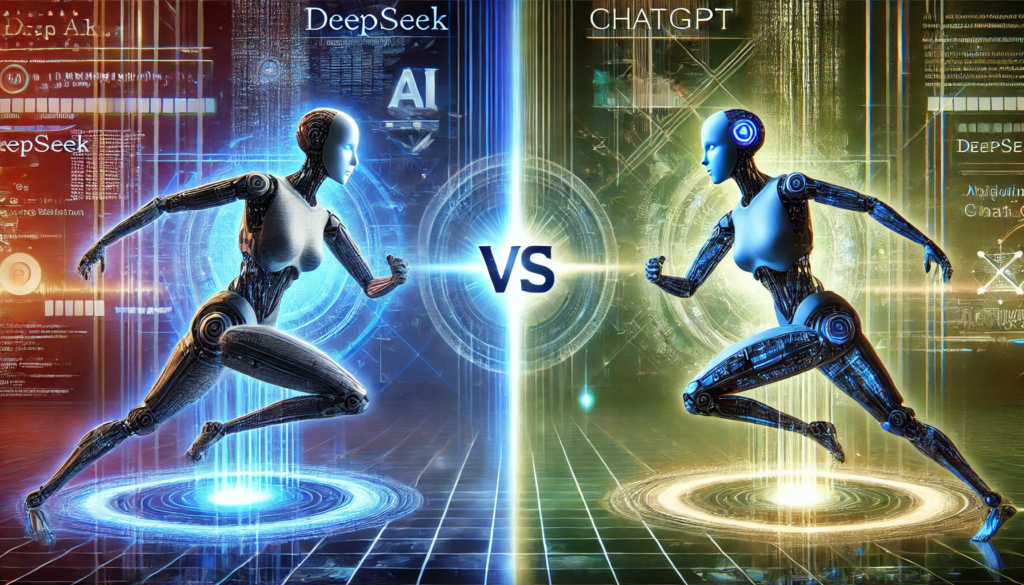Një Përpjekje Globale për të Luftuar Plagjiaturën dhe Misinformacionin nga AI
Në një lëvizje të paprecedentë, autoritetet në disa vende kanë nisur një operacion ndërkombëtar kundër DeepSeek, një platformë kontroverse për krijimin e përmbajtjes me AI, e akuzuar për plagjiaturë masive dhe përhapje të informacionit të gabuar. Ky veprim shënon një hap të rëndësishëm në rregullimin e rolit të inteligjencës artificiale në gazetari, akademi dhe krijim përmbajtjeje digjitale.
Ngjitja dhe Rënia e DeepSeek
DeepSeek fitoi shpejt popullaritet si një model i avancuar AI, i aftë të gjeneronte artikuj, ese dhe punime kërkimore me saktësi pothuajse njerëzore. Megjithatë, suksesi i tij u njollos nga akuzat për kopjimin e përmbajtjes origjinale nga burime të besueshme pa atribucion të duhur, shkelje të të drejtave të pronësisë intelektuale dhe mundësimin e fushatave masive të dezinformatave.
Kritikët argumentuan se DeepSeek jo vetëm që dëmtoi gazetarinë profesionale dhe integritetin akademik, por gjithashtu përshpejtoi përhapjen e lajmeve të rreme, informacionit mashtrues dhe propagandës automatike. Si pasojë, disa qeveri dhe organizata ngritën shqetësime, duke çuar në veprime të koordinuara kundër platformës.
Fillimi i Operacionit
Operacioni ndërkombëtar kundër DeepSeek përfshin agjenci të zbatimit të ligjit, ekspertë të sigurisë kibernetike dhe organizata për të drejtat digjitale nga Shtetet e Bashkuara, Bashkimi Evropian, Kina dhe aktorë të tjerë kyç globalë.
Veprimet kryesore përfshijnë:
- Veprime Ligjore: Autoritetet kanë ngritur paditë dhe urdhra ndalimi ndaj kompanisë në pronësi të DeepSeek dhe organizatave të lidhura.
- Mbyllja e Uebsajteve dhe Serverëve: Ofruesit kryesorë të hostimit dhe shërbimeve cloud janë udhëzuar të çaktivizojnë aksesin në infrastrukturën online të DeepSeek.
- Hetimi i Algoritmeve: Studiuesit e AI po analizojnë modelet e mësimit të makinerive të DeepSeek për të përcaktuar shkallën e shkeljeve të të drejtave të autorit dhe gjenerimit të dezinformatave.
- Heqja e Përmbajtjes: Platformat e mediave sociale dhe motorët e kërkimit po punojnë për të demonetizuar dhe ulur renditjen e përmbajtjes së krijuar nga DeepSeek.
Ndikimi në AI dhe Krijimin e Përmbajtjes
Ky operacion ngre pyetje të rëndësishme mbi përdorimin etik të AI në krijimin e përmbajtjes. Ndërsa mjetet e bazuara në AI kanë transformuar industri duke përmirësuar efikasitetin, abuzimi i DeepSeek ka theksuar nevojën urgjente për rregulla më strikte.
Disa implikime kryesore përfshijnë:
- Mbrojtje më e Fortë e Të Drejtave të Autorit: Qeveritë po konsiderojnë ligje të reja për të siguruar që përmbajtja e gjeneruar nga AI respekton të drejtat e pronësisë intelektuale.
- Standardet Etike të AI: Kompanitë teknologjike dhe studiuesit e AI po inkurajohen të zhvillojnë masa transparence për të parandaluar plagjiaturën nga modelet AI.
- Përgjegjësia e Zhvilluesve të AI: Ky rast mund të krijojë precedent për përgjegjësinë ligjore të kompanive të AI për përmbajtjen që gjenerojnë modelet e tyre.
Çfarë Pritet në të Ardhmen
Ndërsa operacioni kundër DeepSeek vazhdon, ekspertët parashikojnë një lëvizje më të gjerë globale për të rregulluar përmbajtjen e gjeneruar nga AI. Autoritetet pritet të vendosin kërkesa më të rrepta për përputhshmërinë e zhvilluesve të AI, dhe platformat që përdorin përmbajtje të gjeneruar nga AI mund të jenë nën vëzhgim më të afërt.
Ndërsa AI mbetet një mjet i fuqishëm për inovacion, rasti DeepSeek shërben si paralajmërim se automatizimi pa kontroll mund të ketë pasoja serioze etike dhe ligjore. Ky operacion është vetëm fillimi i një beteje më të madhe për të siguruar që AI të përdoret në mënyrë të përgjegjshme në epokën digjitale.




